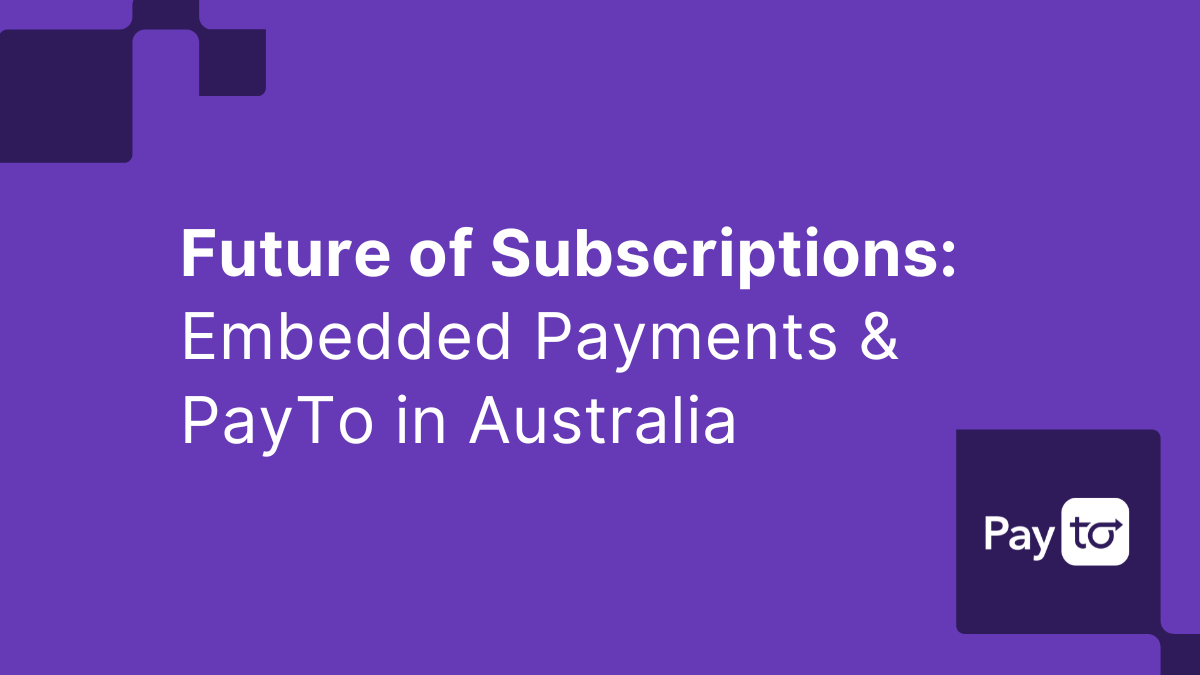Subscription models have reshaped the way businesses deliver value and created reliable recurring revenue for organisations of all sizes. However, for many providers, the payment experience hasn’t kept pace.
Regardless of the service, whether you operate a fitness studio, a streaming platform, or a food delivery company, failed payments and manual processes caused by outdated subscription software can slow everything down and eat into profits. This is why it is important to explore and understand how embedded payments and a modern recurring billing API come into play.
As Australia’s BECS Direct Debit platform heads towards retirement, the future of subscriptions lies in automation, integration and real-time visibility. Many businesses have already made the switch and are enjoying the benefits of a smoother, more streamlined solution.
Why Subscription Payments Are Broken
Payments need to run like clockwork within subscription businesses, and ideally with as little human intervention as possible.
Legacy systems often rely on outdated payment rails, which still depend on file uploads and clunky internet banking portals.
When something goes wrong and a payment fails, the process is still dependent on having someone download a file, log into the bank, upload it and figure out what failed, then follow up with the customer. It’s time-consuming, error-prone and expensive.
This can mean a full-time headcount. If sights are set on scaling, it’s not sustainable.
When payments fail, there are headaches for the administrative team and customer relationships are put at risk. Subscriptions lapse and churn creeps upwards.
The solution lies in switching to embedded payments, which reduces the need for a file-driven, manually operated workflow.
What Are Embedded Payments?
Embedded payments integrate billing and collections directly, eliminating the need for third-party portals or manual processes.
Instead of treating payments as a separate function, they become part of the product by triggering automatically, reconciling in real time and delivering a seamless user experience.
This is partly being driven by BECS’ successor PayTo, which allows customers to authorise subscription payments instantly via their banking app. Using this process, businesses get immediate feedback on whether a payment was successful and it is easier to trigger a retry or implement an automated follow up process to reach out to the customer.
How Monoova Powers Smarter Subscription Payments
Monoova’s API-first platform gives subscription businesses in Australia everything they need to modernise their payment stack without rebuilding their product from scratch.
Here’s how:
1. Real-time billing with multiple rails
Monoova supports PayTo, the NPP, Direct Debit, BPAY and card payments through a single integration. That means subscription businesses can move to modern rails at their own pace, while still supporting legacy methods that customers might rely on.
2. Automated collections and retries
No more guessing which payments failed. Monoova sends instant webhook notifications for failed transactions, so back-end systems can update records, trigger alerts or even start automated recovery workflows.
3. Instant refunds and compliance
Monoova also provides rich data with every transaction, including account names and source details. This makes it easy to detect third-party payments, meet AML obligations and issue refunds back to the original source account with a single click.
Traditional banks don’t provide this data. But for subscription businesses that operate under regulatory scrutiny or need to manage high volumes of refunds, it’s a powerful advantage.
4. Seamless onboarding & Confirmation of Payee
CoP (Confirmation of Payee) is an added layer of verification that helps to confirm account names before disbursing funds. That helps avoid payout errors and adds an extra level of trust to the process.
And because the platform plugs into existing tools, CRMs, billing engines, accounting systems, there’s no need to re-platform or retrain team members.
Is Your Subscription Service Future-Ready?
Consumers want smooth, smart payment experiences, regardless of when and how they part with their funds. Meanwhile, subscription businesses grow faster when payments are embedded, reconciled in real time and backed by better data.
Monoova helps you get there — with a recurring billing API built for embedded payments in Australia, and a support team that understands the market inside out.
Future-proof your subscription business with Monoova. Automate collections, reduce churn and offer real-time payments with embedded billing. Speak with a member of our team today.
Frequently Asked Questions About Subsciption Payments
Q: What are embedded payments?
A: Payments built directly into software platforms,enabling automated, real-time billing and reconciliation.
Q: Why are embedded payments important for subscriptions?
A: They reduce churn, improve customer experience and cut admin costs.
Q: How does PayTo improve subscription payments?
A: PayTo enables instant customer authorisation and real-time payment confirmation.
Q: What is a recurring billing API?
A: It’s an API that automates subscription billing, collections and refunds with minimal manual effort.
Q: How does Monoova support subscription businesses?
A:Monoova offers PayTo, NPP, Direct Debit, BPAY, cards & real-time reconciliation via one API.




.png)
.png)